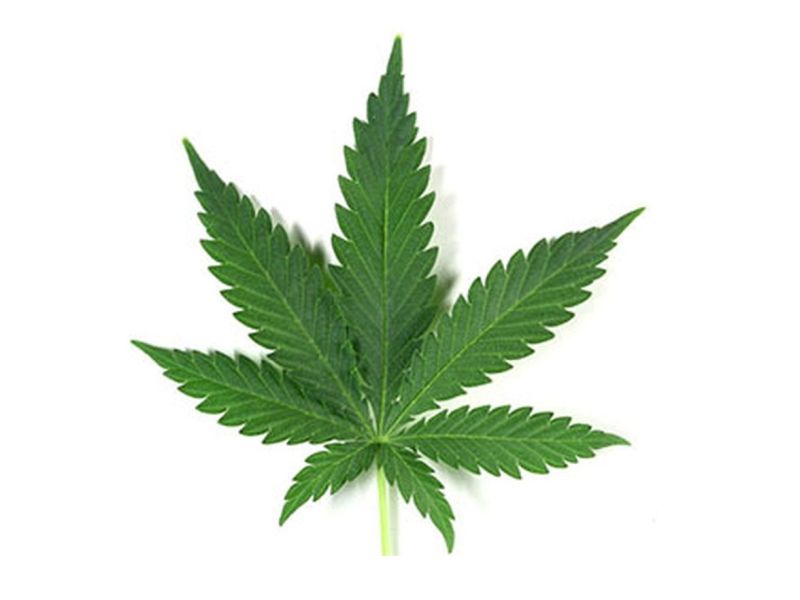He Ate a 'Pot Lollipop' -- and a Heart Attack Soon Followed
By Alan MozesHealthDay Reporter

MONDAY, Feb. 11, 2019 (HealthDay News) -- If you're an aging baby boomer who thinks you can handle today's potent marijuana "edibles," the case of a man who had a heart attack after eating a pot lollipop should give you pause.
The 70-year-old patient had been taking heart medications and consumed roughly 90 milligrams (mg) of THC while trying to ease pain and aid sleep. That's a far greater amount than the 7 mg of THC that is typically found in a single joint. THC is the ingredient in pot that makes you high.
A heart attack ensued after the man felt crushing chest pain and experienced a sudden reduction of blood flow to his heart, his Canadian doctors reported.
The patient survived, noted study author Dr. Alexandra Saunders. But, "we thought this case report was important to publish because it was about a person with known heart disease and risk factors for heart disease, which is an ever-growing part of our population," Saunders said.
Although the man had smoked pot when he was young, average THC counts have since risen considerably. Nor had the patient understood that the effects of edibles kick in more slowly, are more powerful and last longer, noted Saunders, who is chief resident of the department of cardiology's internal medicine program at Dalhousie University in Saint John, New Brunswick.
"What we presume about this event is that the intense stress caused from his fearful hallucinations caused him to have undue stress on his heart, making his heart beat faster and blood pressure go up in such a way that his coronary arteries were not able to meet the demand for blood supply," Saunders explained.
THC-prompted blood vessel inflammation may also have played a role, though Saunders said this possibility requires more research.
That said, the researchers noted that the typical THC dosage in synthetic medicinal pot products specifically intended for nausea control and appetite stimulation (often as a treatment for AIDS and/or cancer) is just 2.5 mg. So, would those products have been safe?
"That is the part that we do not know at present and have no guidance on," said Saunders, adding that while the researchers "assume that a smaller dose certainly would have put less of a stress on the heart, [there are] no studies or data to support this."
Regardless, Saunders said that "this case brings attention to the fact that just because something is legal, does not mean it is safe and does not mean it is something that should be taken by everyone. We do not want to demonize it, we just want our older patients with heart disease to have proper guidance."
Saunders encouraged consumers to familiarize themselves with the THC content of any marijuana product, and to take the form of the product into account. For example, pot lollipops are not intended to be consumed all at once, despite what many might presume.
Paul Armentano, deputy director of the marijuana legalization advocacy organization called NORML, said that his organization has "long recognized that THC exposure can influence blood pressure and heart rate, particularly in more naive consumers."
As a result, he said, "there may be some populations that may be vulnerable to increased risks from the use of cannabis," including adolescents, pregnant women, nursing mothers, heart disease patients and those with a personal or family history of psychiatric illness.
"As with any medication, patients should consult thoroughly with their physician before deciding whether the medical use of cannabis is safe and appropriate," Armentano added.
To date, Canada has only legalized marijuana leaves for recreational use, although pot edibles are scheduled for legalization later this year.
In the United States, pot is banned on a federal level, although it is recreationally legal in Washington, D.C., and 10 states: Alaska, California, Colorado, Maine, Massachusetts, Michigan, Nevada, Oregon, Vermont, and Washington. Medical marijuana use is legalized in 33 states, and Washington, D.C.
The case report was published online Feb. 11 in the Canadian Journal of Cardiology.
More information
There's more about marijuana use at the U.S. Centers for Disease Control and Prevention.

The news stories provided in Health News and our Health-E News Newsletter are a service of the nationally syndicated HealthDay® news and information company. Stories refer to national trends and breaking health news, and are not necessarily indicative of or always supported by our facility and providers. This information is provided for informational and educational purposes only, and is not intended to be a substitute for medical advice, diagnosis, or treatment.

